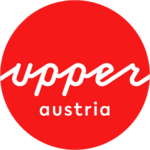Travel information
Important information for your holiday in Upper Austria. What you need to know when you spend your holiday in Upper Austria: entry requirements, regulations for motorists and important telephone numbers.
Entry requirements
Austria is a member of the European Union and the Schengen Agreement. At the borders between Schengen member states, there are no border controls. However, carrying an identification document is compulsory. Even children require travel documents!
Currency
1 euro = 100 cents
Country code
0043
New entry and exit system (EES)
From autumn 2025, the new Entry/Exit System (EES) will be gradually introduced in the Schengen area - and therefore also in Austria. It replaces the passport stamp and records entries and exits electronically.
Who is affected?
- The EES applies to travellers from non-EU countries (e.g. Great Britain, USA, Canada or Asia) who enter the Schengen area for a short period of time - up to 90 days.
- For EU citizens and travellers from Schengen states outside the EU such as Iceland, Norway, Switzerland and Liechtenstein, nothing changes - the EES does not apply to them.
What is new?
In future, fingerprints and a facial image will be taken on entry as part of the EES. This data replaces the previous stamp in the passport.
As the check may take a little longer, it is advisable to arrive at the airport a little earlier.
Important to know:
- The EES will start in October 2025 and will apply in full from April 2026.
- The existing visa regulations remain unchanged.
Further information from the Federal Ministry of the Interior
Import regulations
Among EU member states, there is free movement of goods. Tobacco products and alcoholic beverages, however, can only be imported duty-free with your personal luggage in such quantities which qualify for personal use. The following quantities must not be exceeded:
- 800 cigarettes
- 400 cigarillos
- 200 cigars
- 1 kilogram tobacco
- 10 litres of spirits
- 90 litres of wine; this includes a maximum of 60 litres of sparkling wine
- 110 litres of beer
- 20 litres of other alcoholic beverages with less than 22 % vol.
The following goods can be imported into Austria from non-EU countries with your personal luggage for personal use or as presents:
- 200 cigarettes or 100 cigarillos or 50 cigars or 250 grams tobacco
- 1 litre of alcohol and alcoholic beverages with an alcoholic content of more than 22 % vol or 2 litres of alcohol and alcoholic beverages with a maximum alcoholic content of 22 % vol.
- 4 litres of non-sparkling wine
- 16 litres of beer
- medication in a quantity not exceeding the amount needed for personal use
- other goods up to a total of 300 euros or 430 euros for air passengers are duty-free
For motorists
The speed limit for cars and motorcycles is 130 km/h on motorways, 100 km/h on country roads and 50 km/h in towns. It is compulsory for all car occupants to wear a seat belt and for motorcyclists to wear a helmet. For children, the use of a child’s safety seat in accordance with their age and height is compulsory. All motorways and highways are toll roads. Motorists can choose between a 10-day, 2-month or annual vignette (toll disc). Toll discs are available at service stations, post offices, tobacconists and the automobile associations ÖAMTC and ARBÖ. The formation of emergency corridors is required on motorways and highways in the event of a traffic jam. For drivers, the maximum legal blood alcohol content permitted is 0.5 mg/ml. When driving in wintry road conditions, winter tyres are compulsory from 1 November to 15 April.
Pets
An EU pet passport is required for dogs, cats and ferrets providing proof of a valid anti-rabies vaccination. In addition, all animals must be fitted with a microchip for identification purposes. Other pets, such as rodents, may travel without health certificates. Animal owners are, however, responsible for preventing the spread of animal epidemics.
Doctors and pharmacies
Doctors and pharmacies can be found in all larger towns, municipalities and cities. Pharmacies take turns in providing night and weekend services. Hospitals form the backbone of stationary medical care in almost all district capitals in Upper Austria.
Important telephone numbers:
European emergency number: 112
Fire brigade: 122
Police: 133
Rescue: 144
Emergency doctor: 141
Mountain rescue: 140
ÖAMTC roadside assistance: 120
ARBÖ roadside assistance: 123
In harmony with Austria's pastures and meadows.
The Federal Ministry for Sustainability and Tourism, the Austrian Chamber of Agriculture, the Austrian Federal Economic Chamber and the Alpine Association have worked closely together to draw up 10 rules of behaviour for the correct handling of grazing livestock on Austria's alpine pastures.
